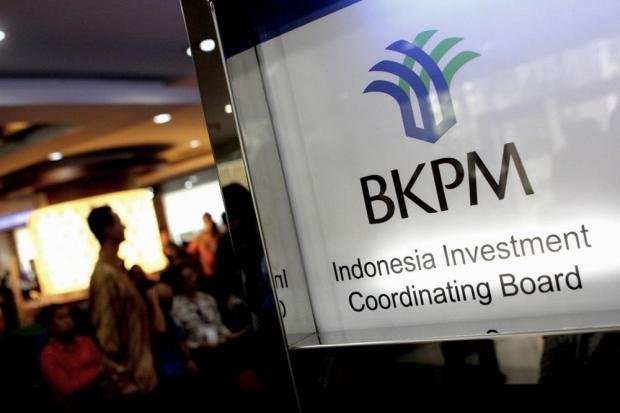
By: Ridwan Jasin Zachrie, CFO/ Senior Advisor Seven Stones Indonesia
A cryptocurrency refers to a digital or virtual form of currency that utilizes cryptography for secure financial transactions, controlling the creation of new units, and verifying the transfer of assets. Unlike traditional fiat currencies issued by central banks, cryptocurrencies operate on decentralized systems known as blockchain technology.
Here are some key aspects to understand about cryptocurrencies
Blockchain Technology
Cryptocurrencies are built on the blockchain, which is a decentralized and distributed ledger that records all transactions across a network of computers. This technology ensures transparency, immutability, and security.
Decentralization
Cryptocurrencies are typically decentralized, meaning they are not controlled by any central authority such as a government or financial institution. Instead, they rely on a network of participants (nodes) to maintain the integrity of the blockchain.
Cryptographic Security
Cryptocurrencies use cryptographic techniques to secure transactions and control the creation of new units. Public-key cryptography ensures that only the intended recipient can access the funds, while private keys provide ownership and control over the assets.
Digital Wallets
Users store their cryptocurrencies in digital wallets, which can be software-based (on a computer or mobile device) or hardware-based (a physical device). These wallets provide a secure way to store, send, and receive cryptocurrencies.
Mining
Some cryptocurrencies, like Bitcoin, employ a process called mining to validate transactions and add them to the blockchain. Miners use powerful computers to solve complex mathematical puzzles, and in return, they are rewarded with newly created cryptocurrency units.
Supply and Creation
Most cryptocurrencies have a limited supply and follow predetermined issuance rules. For example, Bitcoin has a maximum supply of 21-million coins, and the rate of issuance decreases over time. This scarcity can contribute to their value.
Volatility
Cryptocurrencies are known for their price volatility, which means their value can fluctuate rapidly. Factors such as market demand, regulatory developments, technological advancements, and investor sentiment can influence cryptocurrency prices.
Use Cases
Cryptocurrencies offer various use cases beyond being a medium of exchange. They can facilitate smart contracts, decentralized applications (DApps), and provide solutions for cross-border payments, remittances, fundraising (Initial Coin Offerings or ICOs), and more.
Regulatory Environment
The regulatory landscape for cryptocurrencies varies across different countries. Some governments have embraced cryptocurrencies, while others have imposed restrictions or implemented regulations to ensure consumer protection, prevent illicit activities, and maintain financial stability.
Altcoins and Tokens
While Bitcoin is the most well-known cryptocurrency, there are thousands of alternative cryptocurrencies, often referred to as altcoins. Additionally, tokens can be created on existing blockchain platforms, serving various purposes within specific projects or ecosystems.
Note: It’s essential to conduct thorough research, exercise caution, and exercise sound judgment when dealing with cryptocurrencies due to their inherent risks. Keeping up with the latest news, understanding the technology, and seeking advice from reputable sources can help navigate the complex world of cryptocurrencies.
Can we use crypto as payment?
In some countries, yes, cryptocurrencies can be used as a form of payment, but Bali has recently banned payments using cryptocurrencies on the island. According to reporting from Antara News, the Bali Provincial Government will begin cracking down on foreign tourists using crypto as a means of payment in hotels, restaurants, tourism destinations, shopping centers, and other places.
Although acceptance of cryptocurrencies as a payment method is not yet widespread compared to traditional fiat currencies, there are several ways you can use crypto for transactions:
Online Merchants
Some online businesses and e-commerce platforms accept cryptocurrencies as a payment option. Major companies like Microsoft, Expedia, and Overstock.com have integrated cryptocurrency payment gateways to allow customers to make purchases using cryptocurrencies.
Point of Sales (POS) Systems
Cryptocurrency payment processors and POS systems enable physical retailers to accept crypto payments. These systems often involve scanning a QR code or using a digital wallet to initiate the transaction. Some businesses, particularly in tech-savvy cities, have started accepting cryptocurrencies in physical stores.
Peer-to-Peer Transactions
Cryptocurrencies allow for direct peer-to-peer transactions without the need for intermediaries such as banks. You can send cryptocurrencies to other individuals anywhere in the world, provided they have a compatible wallet address.
Gift Cards and Vouchers
Some platforms enable the purchase of gift cards or vouchers with cryptocurrencies. These gift cards can then be used at various merchants, both online and offline, as a means of payment.
Debit Cards
Crypto debit cards are available in certain regions, allowing users to load their cards with cryptocurrencies and use them at any merchant that accepts traditional debit or credit cards. These cards convert the cryptocurrency into fiat currency at the point of sale.
It’s worth noting that while the use of cryptocurrencies for payments is growing, it is still not as widely adopted as traditional payment methods. Factors such as price volatility, regulatory concerns, and scalability issues have contributed to slower adoption. Additionally, transaction times and fees can vary depending on the specific cryptocurrency and network congestion.
Before making a payment with cryptocurrencies, it’s essential to check whether the merchant or service provider accepts cryptocurrencies and understand any associated fees or conversion rates.
The risks of using crypto
Using cryptocurrencies entails various risks that users should be aware of. Here are some key risks associated with cryptocurrencies:
Price Volatility
Cryptocurrencies are known for their significant price fluctuations. Prices can experience rapid and substantial changes within short periods. This volatility exposes users to the risk of potential losses if the value of their cryptocurrency’s declines.
Security Concerns
While cryptocurrencies use advanced cryptographic techniques for security, there are still security risks involved. Users must take precautions to protect their digital wallets and private keys from theft, hacking, or phishing attacks. If a wallet or private key is compromised, there is a risk of losing the associated cryptocurrencies.
Lack of Regulation and Legal Protection
Cryptocurrencies operate in a relatively unregulated environment in many jurisdictions. The absence of comprehensive regulations can lead to potential risks such as fraud, market manipulation, and money laundering. Additionally, the lack of legal protection may make it challenging to recover lost or stolen funds.
Operational Risks
The functionality and reliability of cryptocurrency exchanges, wallets, and other service providers can vary. Technical glitches, cyber attacks, or system failures on these platforms can disrupt transactions, result in loss of funds, or affect the overall user experience.
Regulatory and Compliance Risks
Governments and regulatory bodies are still developing frameworks to govern cryptocurrencies. Regulatory changes, such as restrictions or bans, can impact the use and value of cryptocurrencies. Compliance with taxation and reporting requirements for cryptocurrency transactions can also be complex and carry legal risks.
Market Liquidity
Cryptocurrency markets can experience liquidity issues, especially for less popular or low-volume cryptocurrencies. Low liquidity can make it difficult to buy or sell cryptocurrencies at desired prices, potentially impacting the ability to enter or exit positions.
Scams and Ponzi Schemes
The cryptocurrency space has seen instances of scams, fraudulent initial coin offerings (ICOs), and Ponzi schemes. It’s crucial to exercise caution and conduct thorough research before investing in any cryptocurrency project or participating in token sales.
Technological Risks
Cryptocurrencies rely on complex technology, including blockchain networks. Vulnerabilities in the underlying technology, smart contracts, or consensus algorithms can be exploited by hackers or result in unintended consequences.
It’s important to note that while cryptocurrencies carry risks, they also offer potential rewards and opportunities. It’s advisable to educate yourself, understand the risks involved, and take appropriate measures to mitigate those risks. This includes adopting strong security practices, conducting due diligence, and seeking advice from reputable sources.
Image by Kanchanara on Unsplash.


















